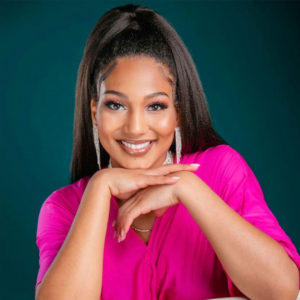In the three years since I graduated from high school in Southlake, TX, I’ve found myself more involved in the school system than I ever was as a student. My involvement in Carroll ISD, as our school district is known, is driven not out of love but fear. I am extremely fearful of the environment that students in the district are dealing with right now.
August 3rd will mark the two-year anniversary of the arrival of backlash politics to our community. After nine white Carroll students chanted the n-word in a video on the internet, our District Diversity Council developed a diversity and inclusion plan called the Cultural Competence Action Plan, or the CCAP. Due to the controversy surrounding the plan, our predominantly conservative city has seen a series of highly politicized school board elections since then. The CCAP has now been entirely removed from the table and there are no other diversity plans in the works, but there are several inequitable ideas that are.
Last spring, pro-diversity and inclusion candidates to the school board were overwhelmingly defeated by far-right, anti-diversity opponents. This fall, yet another far right ideologue joined the board. Their extreme views are already remaking the district and keeping students from a fair and honest education.
Nearly 1,000 books ranging from topics of race to gender and sexuality have been blocked off with caution tape and removed from Carroll bookshelves. Last October, the CISD school board voted 3-2 to reprimand a fourth grade teacher for having the book This Book is Anti-racist: 20 Lessons on How to Wake Up, Take Action, and Do the Work by Tiffany Jewell after a handful of parents complained that it violates their beliefs and values.
Books like What is White Privilege? by Leigh-Ann Erickson, Avoiding Bullies?: Skills to Outsmart and Stop Them by Louise Spilsbury, An Indigenous Peoples’ History of the United States for Young People by Jean Mendoza, LGBTQ Rights by Susan Henneberg and more than 800 other titles have been banned as well. Practically any resource about racism, human rights, the LGBTQ+ community, or sex education has been removed from Carroll ISD campuses and other schools across the state. Texas even reportedly considered requiring teachers to refer to slavery as “involuntary relocation” in history lessons.
So what does this mean for the students who attend in Southlake? There is every indication that far-right officials will continue to try to limit what kids are taught about the world. They dominate the school board now so why would they stop? Students here were already taught far too little about slavery and indigenous history. Soon they’ll learning nothing at all.
The current climate isn’t just chilling the speech of teachers but students too. When I tried to get students to talk about the current political climate in Southlake, they flatly declined. They’ve seen their peers get harassed, bullied and discriminated against for protesting in the past. The situation is even worse now.
“Students are scared to speak up because they know that most of this community is going to attack them or shut them down because they are the majority,” one student told me on the condition that I not use their name. “There needs to be policy to ensure the history being taught is accurate.”
As a Black Carroll alum, I see myself in the students that are suffering there currently. I know what it feels like to be silenced and ignored by the adults who are supposed to protect me. But for me the experience is over. For them, it’s intensifying day by day.
We are only in the beginning of a censorship crisis. Since the first politicized school board election, we’ve seen a snowball effect in the district. Nor is the push to chill speech and limit learning confined to Southlake. Last Summer, Gov. Greg Abbott signed a bill that banned discussion about critical race theory and heavily restricts teaching about current events. Now he’s planning to enact anti-trans legislation, essentially encouraging extremists to target vulnerable students.
The situation in districts like the one I attended is likely to get much worse, very quickly. The past couple of years have proven that officials in our schools and the city more generally are all too willing to neglect marginalized students, even as they call out for help. Worse, they’ll use their power to create a climate that’s increasingly dangerous for students who are already vulnerable. In recent weeks, the conservative majority has voted to hire a Republican-focused PR firm to handle communications, and considered eliminating sexual orientation and gender identity from the district’s non-discrimination statement.
Yet despite this I remain hopeful. It is possible to create an equitable education system. We must be loud and continue to demand change. It is crucial that we continue to attend local school board and city council meetings, contact your local city officials, spread the word on your social media platforms, etc. Our voices matter!
For more in depth information about racism, discrimination and the censorship crisis in Southlake, TX, listen to Have You Heard’s “Confronting the Backlash” podcast, the NBC podcast, “Southlake”, and follow the Southlake Anti-Racism Coalition on Instagram, Twitter, Facebook and Tiktok @SouthlakeARC for student testimonies.
Raven Rolle is a senior journalism/sociology student at the University of Kentucky and a member of the Southlake Anti-Racism Coalition. She is passionate about social justice and strives to make anti-racist change in the world.

